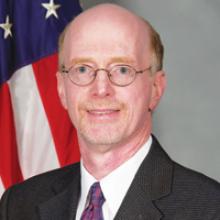BALTIMORE—A new algorithm may be key to optimizing alertness with caffeine, a study suggests. Caffeine is the most widely used stimulant to counter the effects of sleep loss on neurobehavioral performance, but no tools exist to guide the timing and amount of caffeine consumption to optimize its benefits, said Jaques Reifman, PhD, and colleagues. “By using our algorithm, which determines when and how much caffeine a subject should consume, we can improve alertness by up to 64% while consuming the same total amount of caffeine” as in previous studies of caffeine use during chronic sleep restriction, said Dr. Reifman. “Alternatively, a subject can reduce caffeine consumption by up to 65% and still achieve equivalent improvements in alertness.”
The study was presented at the 32nd Annual Meeting of the Associated Professional Sleep Societies and published online ahead of print in the Journal of Sleep Research. Dr. Reifman is a senior research scientist and Director of the Department of Defense Biotechnology High Performance Computing Software Applications Institute and the Telemedicine and Advanced Technology Research Center at the US Army Medical Research and Materiel Command in Fort Detrick, Maryland.
The researchers used a validated mathematical model that predicts the effects of sleep loss and caffeine on psychomotor vigilance task (PVT) performance and combined it with a computationally efficient optimization algorithm to determine when and how much caffeine should be consumed to safely maximize alertness during sleep loss. They used the algorithm to determine ideal dosing strategies for four previously published experimental studies of chronic sleep restriction. The researchers computed dosing strategies that enhanced the predicted PVT performance using the same total amount of caffeine as in the original studies, as well as strategies that achieved an equivalent level of performance, but used less caffeine overall.
The algorithm tailored the timing and amount of caffeine to the sleep–wake schedule of each study condition to maximize caffeine’s benefits, such as by postponing the first dose on certain days, prescribing more caffeine during longer periods of wakefulness, and allocating doses near the end of the day.
The algorithm is designed to predict caffeine’s effects on simple tasks, so dosing strategies for other tasks may differ, the researchers noted. In addition, the algorithm does not account for the effects of sleep debt on caffeine’s benefits or individual differences in caffeine sensitivity.
Suggested Reading
Vital-Lopez FG, Ramakrishnan S, Doty TJ, et al. Caffeine dosing strategies to optimize alertness during sleep loss. J Sleep Res. 2018 May 28 [Epub ahead of print].


